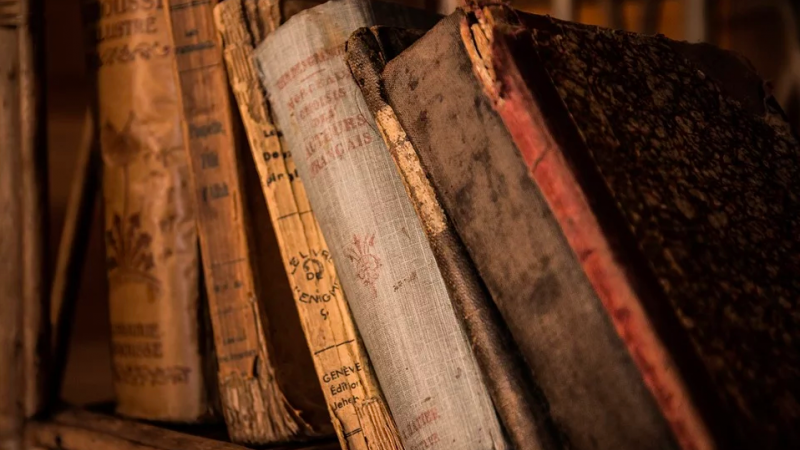3 Ways of Confronting the Problem of Diminishing Attention Spans through the Great Books

How many books do you finish? How many blog posts do you really read? I am guessing that you, like me, are busy and are tempted to skim just about everything. In a world of touch screens and endless entertainment, our attention spans atrophy into something that might look like childishness to our ancestors. But how can we build up the attention spans that we need for sustained thought in the modern age. Hamilton, Madison, and Jay said that the audience that they contemplated while writing their masterful defense of the new US Constitution in The Federalist Papers was a farmer in Upstate New York. In our day, it seems that most every time a politician opens his mouth, we find that he could not match that 19th century dirt farmer. Our attention spans are diminished and might, it seems, be extinguished completely, but I want to recommend a course of treatment. It is simple: read the Great Books. Here are three ways reading these books helps us confront the problem of diminishing attention spans.
- The Great Books are a Mirror that Helps Us See the Problem
The Great Books hold up a mirror that helps us see the extent of the problem (which is the diminishment of our capacity for sustained thought). Reading the Great Books is challenging. This first book I teach to our seniors each year is Milton’s Paradise Lost. It is a challenge! Deep concepts, archaic language, demanding expectations (because Milton expects that you have read the other Great Books written before his—particularly the Bible). This is difficult, but we need to understand one powerful fact: people in every generation prior ours have mastered these books because they are so important! What is the mirror saying about our generation?
- The Great Books Reward Sustained Contemplation
The Great Books reward sustained contemplation where the reading of “chapters” is necessary. Have you ever read a page or two, or a paragraph or two, of a book only to get distracted? You retain almost nothing. Emily and I had an embarrassing situation like this early in our marriage. We decided to read The Lord of the Rings together. So far, so good, right? Wrong! We decided that we would read it to each other when we went to bed. Our first daughter, Maddy, had just arrived. I was working hard at the school. We were both exhausted. It did not go well. We actually dreaded the elf poetry and songs that Tolkien inserts. That knocked us out every time. Because of the brokenness of the reading, we missed so much.
The Great Books reward sustained concentration and punish flighty drifting. Each year when I teach Paradise Lost, I tell the students that reading this book is like weightlifting. Reading it grows you. You leave it stronger than you began, but unless you devote yourself to reading a section, book, canto, or chapter your reward is diminished. This means that these books challenge their reader to make them a priority. They grow our attention span and by this they grow us toward fuller humanity.
Very few people do things just because they are difficult—and most of those people need help. Hard things should be hard for a reason. They should eventually result in happiness or the hope of happiness. The Great Books can be challenging, but they reward those who discipline both their tastes and abilities. The experience of the Great Books makes everything else better and sweeter. Every time I am watching a movie where a husband stands between his wife and evil men, my mind starts drifting off to Odysseus stringing the bow and restoring order to Ithaca. Your life is richer for reading the Odyssey. So, the discipline that reading the Great Books rewards actually makes life sweeter and better.
- The Great Books Measure Us
The Great Books measure us. We need to grow up to read them. We need to do this thoughtfully and with a sense of the frame of our students, but we should celebrate with them when they become men and women who complete the Iliad or the Aeneid or Moby Dick. As they accomplish this, they become a member of a community that stretches back in time to the begin of this civilization. They begin to love the same words that their grandparents and great-great-great (etc.) grandparents loved. Of course, the Scriptures are at the core of this “way of viewing the world”. In them, we find the stories that encompass our lives.
A number of years ago, Ken Myers of Mars Hill Audio was speaking at conference and he made this point in a profound way talking about music, he said, “Tradition is something we have to live up to.” His point is mine. The great music of past, measures us. It is not that we cannot add to it, but to add to it, we should first master it. Mastering it prepares us to find our own voice and to find that we have a voice worth heeding. The Great Books are a tradition like this. We speak best when we are disciplined enough to master the tradition.
My hope is that you kept reading this post and that, hopefully, this post will encourage you set aside some time to devote yourself to reading the Great Books. Start by doing the reading. It will stretch you and grow you, but you will find yourself stronger and wiser as you devote yourself to this worthy task.






